"Love Confides in Friendship" is a work by the French sculptor Albert-Ernest Carrier-Belleuse. It is a bronze sculpture, created around 1872, which represents Cupid, often depicted as a young child, taking refuge with Friendship, an older female figure.
Context and Meaning:
The Work:
The sculpture illustrates the idea that love, often passionate and sometimes fragile, finds refuge and comfort in friendship, a symbol of stability and trust.
Albert-Ernest Carrier-Belleuse:
The sculptor is known for his romantic and realistic works, often inspired by mythology and history.
The Salon of 1857:
The original model of the sculpture was presented at the Salon of 1857, where it aroused the interest of the public and critics.
Versions and Casts:
Several casts of this sculpture exist, some of which were made by Jean-François Denière.
Analysis:
Symbolism:
The work uses symbolic language to express a philosophical idea. The child represents nascent, vulnerable love, while the adult woman embodies friendship, more serene and stable.
Context of the time:
The work is part of an artistic movement that values the expression of feelings and emotions, often through allegories.
In summary, "Love Confides in Friendship" is an emblematic sculpture by Carrier-Belleuse that explores the relationship between love and friendship, highlighting the role of friendship as a source of comfort and stability.




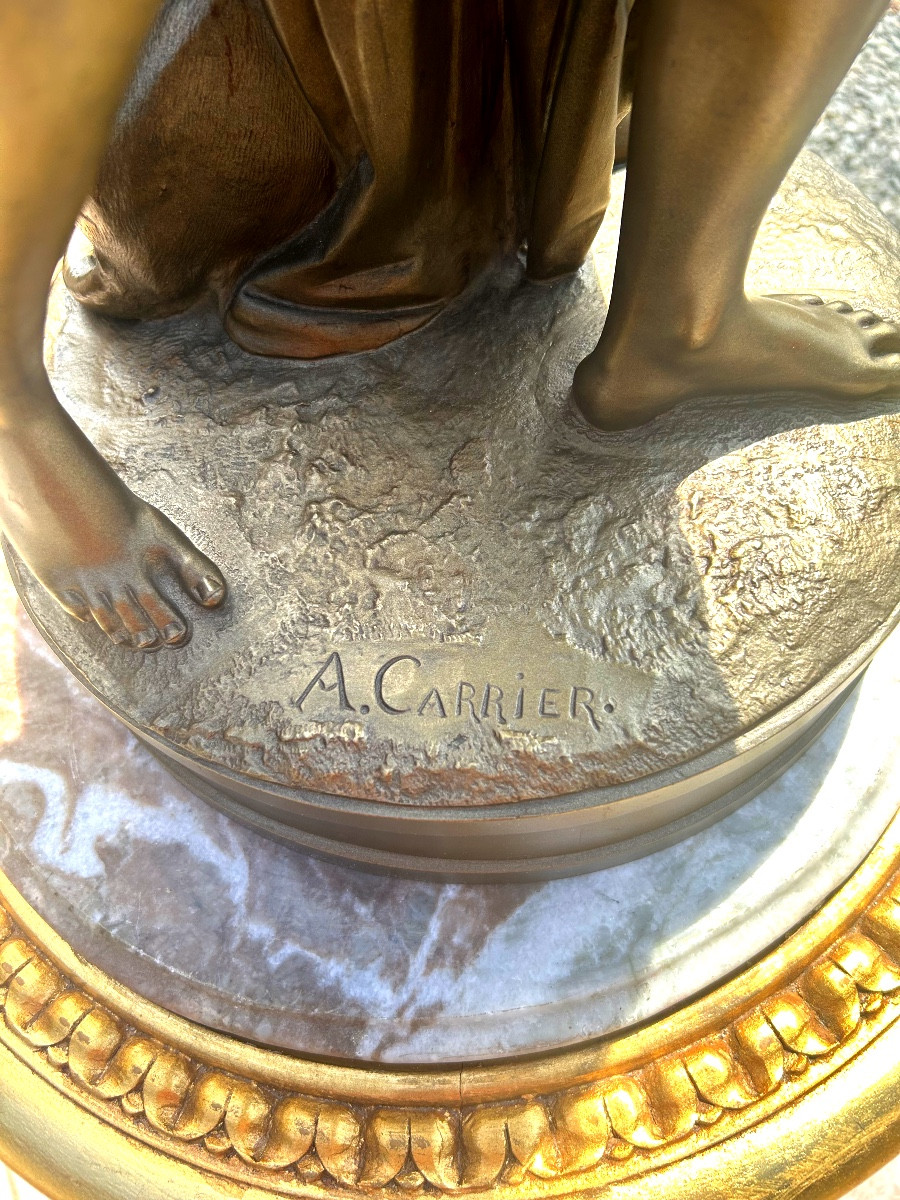
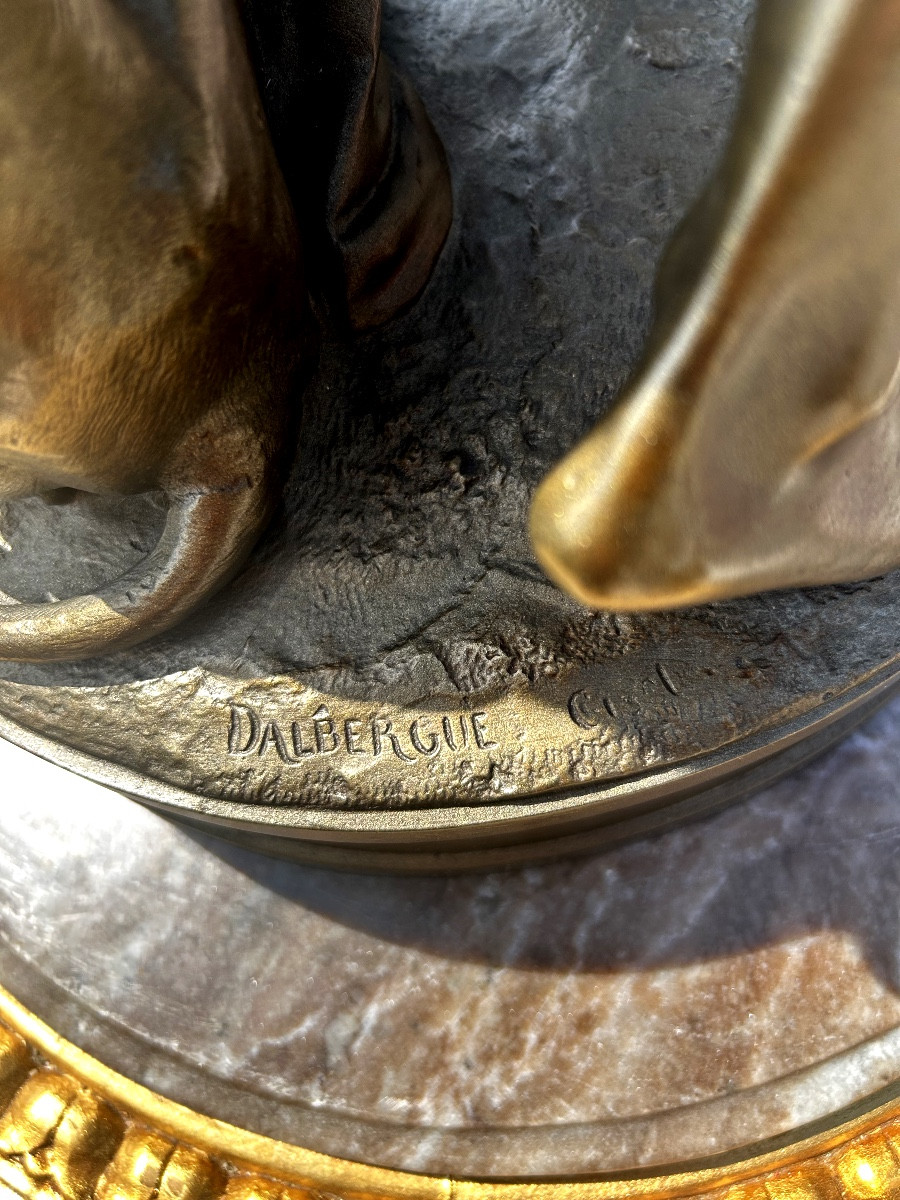




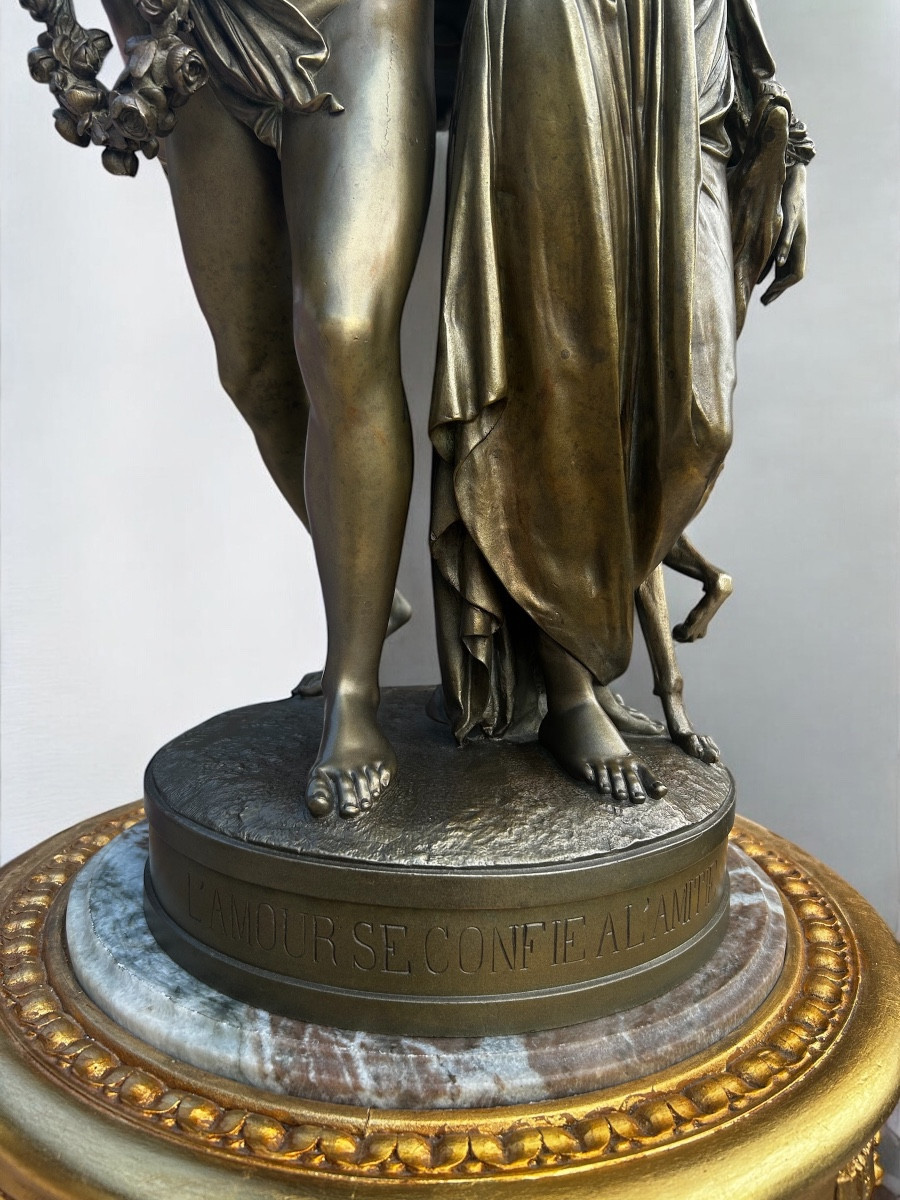
















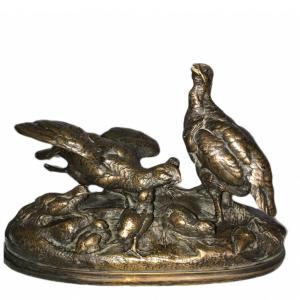







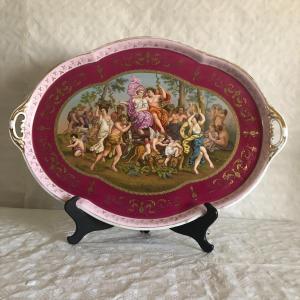







 Le Magazine de PROANTIC
Le Magazine de PROANTIC TRÉSORS Magazine
TRÉSORS Magazine Rivista Artiquariato
Rivista Artiquariato